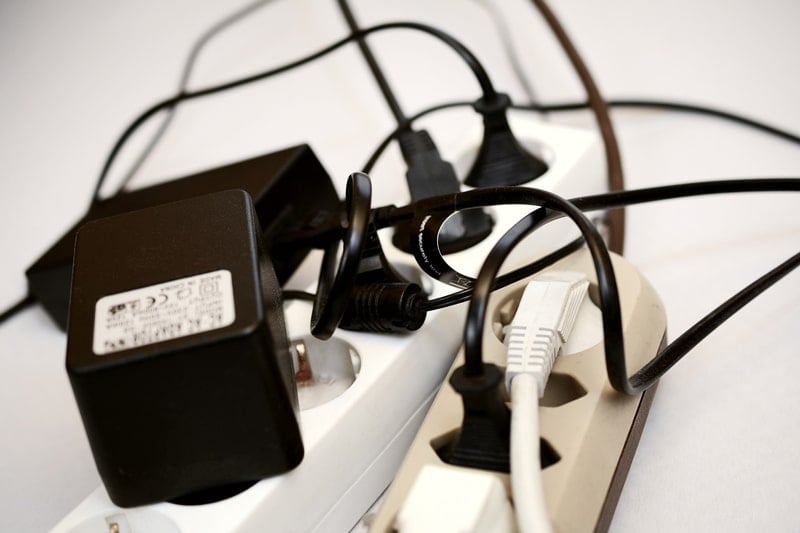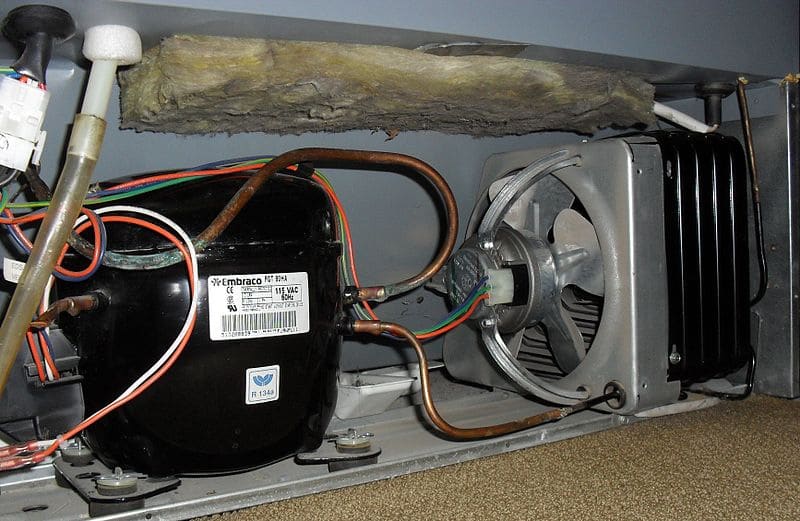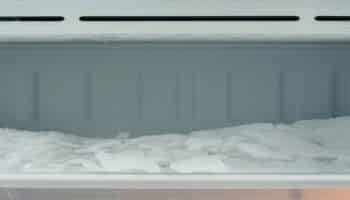We've independently reviewed this article to make sure it's as accurate as we can make it.
To find out more about our article creation and review process, check out our editorial guidelines.
Stuck trying to figure out why your freezer keeps tripping your breaker?
Don’t worry, you’re not alone! In fact, thousands of people struggle with the same issue every day.
The good news is that you’ve come to the right place to get it fixed.
If your freezer is tripping your breaker, check whether the outlet is broken or you’ve overloaded the circuit. You should also look for wear and rust on the power cord and the plug. Then reset the defrost timer to check for issues with the heater.
Ready to hunt down your freezer’s problem? Our article will walk you through the process step by step.
How to Stop Your Freezer From Tripping the Circuit Breaker
Your circuit breaker trips when it detects a sudden power surge or short circuit. This reduces the risk of fire but leaves you guessing about the source of the problem.
There’s a whole chain of wires and components between your freezer and the circuit board. You’ll need to hunt down the faulty link.
Here are some likely culprits:
#1 You’ve Overloaded the Circuit
Finding a gadget that makes your life easier is awesome. But you can have too much of a good thing, especially when tons of good things are all plugged into the same outlet. If you put too much demand on the power circuit, the breaker will trip as a safety precaution.

This won’t always happen the instant you plug in the appliance that breaks the camel’s back. You might be right on the edge of drawing too much power. Then your freezer’s compressor switches on and pushes you over the limit.
Try plugging your freezer into an outlet that’s on a different circuit. Does that solve the problem? If so, then the problem isn’t in the freezer at all.
A fridge can often pull upwards of 10+amps momentarily when starting the compressor. If it is plugged into a 15 amp breaker with other loads plugged in, it doesn’t take much to trip the circuit.
Therefore, it’s recommended to put your freezer on its own circuit moving forward. This will help avoid this issue and make it easier to identify any future problems.
#2 Faulty Outlet
You may also have a busted outlet. Look for warning signs like burned or melted spots and see if the faceplate feels warm.
If any of these signs are present, back away and call an electrician. If not, turn off the breaker and unscrew the cover. Then, look for any loose or blackened wires.
No visible signs of damage? If you know how to use a multimeter, you can test whether the outlet is grounded correctly and that the voltage is consistent. If not, you’ll need to have the outlet replaced by a professional electrician.
Don’t run your freezer from a ground fault circuit interrupter (GFCI) outlet, as these outlets aren’t meant for large appliances like fridges or freezers. They’re too sensitive to fluctuations in power and may cause tripping.
In the event of a GFCI outlet trip, the entire string of sockets may also go dead, even if the breaker box is not tripped.
Therefore, it’s important to replace your GFCI with a standard outlet or plug your freezer into a different spot, though using an extension cord is not recommended.
#3 Busted Cord or Plug
Okay, you’ve confirmed that your circuit isn’t flipping because the outlet is bad, or you’ve plugged too much into it. That means the problem is somewhere in the freezer itself.
The next thing to check is the power cord. If the insulation is frayed or the wiring is damaged, it can cause short circuits or surges. This will trip your breaker. The same thing goes if the prongs on the plug are rusty, wobbly, or broken.
If you find an issue with the cord, we recommend just replacing it. Don’t try to patch problems like this with electrical tape. That’s how you wind up as a cautionary tale that your electrician tells at parties.
#4 Broken Defrost Heater
Yes, many freezers have defrosters – not for the food, but to clear away ice that can build up on the evaporator coil.
If your freezer is a stand-up model or built into a fridge, it probably has an automatic defrost function. Chest freezers usually require you to manually defrost the ice build-up.
If you do have automatic defrost, the heater may be what’s tripping your breaker. It’s one of the most failure-prone parts of most refrigeration units, and when it gets damaged, it can easily cause a short circuit or cause the circuit to draw too many amps.
If your freezer has a mechanical timer defrost system, try resetting the defrost timer to a new cycle. The control for this is typically inside the unit, either at the back or below the lower plate. You may need to use a small flathead screwdriver to turn the knob until you hear the fan shut off.
If the circuit trips soon after you activate the defrost cycle, you’ve pinpointed the problem. Luckily, the defrost heater is usually a pretty inexpensive part to replace.
Bear in mind that a faulty defrost thermostat or a failed main/defrost control board can also cause the issue.
If you want to get any replacement part – or see how much one would cost – click to enter your model number in the search bar below. Our partners at AppliancePartsPros stock almost every part with free guides on how to install them.

#5 Faulty Compressor
Once you’ve ruled out other problems with the freezer, it’s a pretty good bet that the issue is the compressor. This is the workhorse of your unit, the motor driving the heat exchange which chills your food.
When your compressor starts breaking down, it needs to pull more power than normal to get going. This extra demand can trip your circuit breaker.
To figure out if your compressor is causing the issue, you can carefully disconnect the compressor relays (don’t forget to make sure you safely secure any wires with electrical tape, if needed). Then, let the fridge run like normal.
If the breaker no longer trips with the compressor unplugged, it can help you determine the cause of the high amp draw.
You can also try this same trick with fan motors, defrost circuits, and other components to narrow down the problem step by step.
If the compressor was, in fact, the culprit, you may need to replace your refrigerator, since a compressor can cost more than half as much as the entire freezer. Think about whether it’s time to get a new unit rather than fixing this one part.

Conclusion
It’s bad enough to have a freezer fail and risk spoiling all your food. It’s even worse when it cuts off all the power in your kitchen!
We hope this article helps you get your appliance back on track. Don’t forget to rule out basic issues like frayed wiring before checking for complicated issues like broken defrosters or compressors.
Thanks for taking the time to read our guide. If you want more home repair tips, we’ve linked some helpful related articles below.
Good luck!






